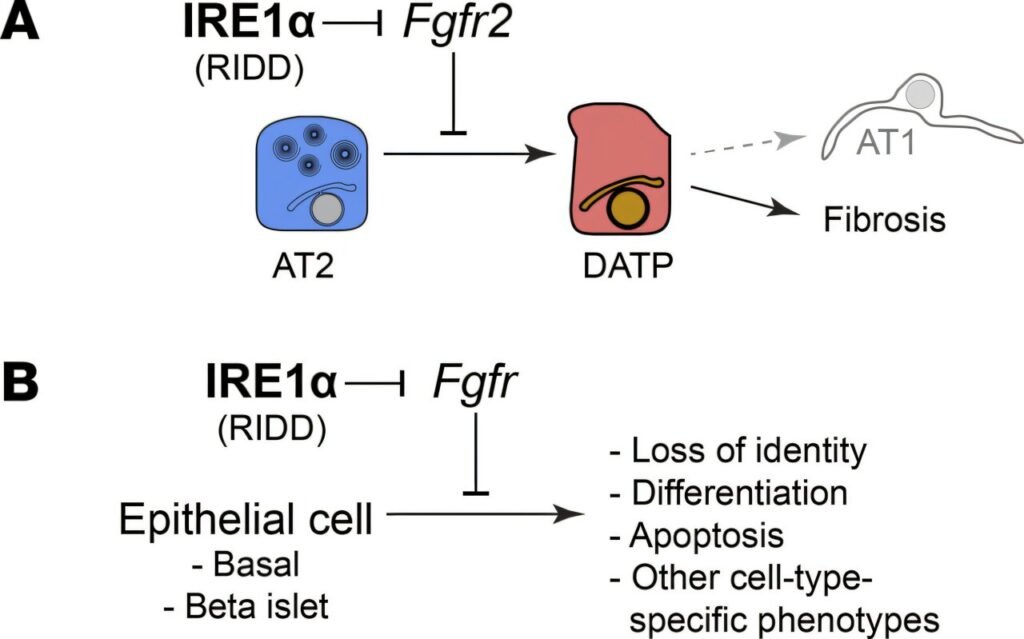Pulmonary fibrosis is a devastating disease that causes the lungs to become thickened and scarred, leading to a gradual loss of their ability to deliver oxygen to the body. Scientists at UC San Francisco have recently made a groundbreaking discovery in the field by identifying a key cellular switch that drives this process and developing a way to block it in mice.
The research, published in the Journal of Clinical Investigation, focuses on preventing healthy lung cells from converting to a more harmful cell type, which in turn dramatically reduces the amount of scarring in the lungs of mice with pulmonary fibrosis. This breakthrough offers a new hope for patients suffering from this deadly disease, which has limited treatment options and a poor prognosis.
Dr. Feroz Papa, a professor of medicine at UCSF and co-senior author of the study, expressed excitement about the potential of this new therapy to move closer to clinical trials. The findings not only provide a promising treatment for pulmonary fibrosis but also shed light on how cells under stress can change their identity in harmful ways, a process relevant to other diseases like diabetes, neurodegeneration, and chronic liver disease.
The study focused on a protein called IRE1α, which plays a crucial role in pushing lung cells known as alveolar type 2 (AT2) cells into a harmful transitional state during pulmonary fibrosis. This transitional state, where cells lose their normal function and release signals that worsen scarring, is a key driver of the disease. By blocking the activity of IRE1α using a drug called PAIR2, the researchers were able to prevent further damage and partially reverse the fibrosis in mice.
PAIR2 selectively targets the harmful activity of IRE1α without interfering with its essential functions, making it a promising candidate for future therapies in human patients. While more research is needed to establish the safety and efficacy of PAIR2 in people, the results of this study represent a significant step towards developing new treatments for pulmonary fibrosis.
The importance of fundamental research in uncovering new therapeutic targets for previously untreatable diseases was highlighted by the team at UCSF. Basic research can pave the way for innovative treatments that have the potential to transform the lives of patients suffering from debilitating conditions like pulmonary fibrosis.
In conclusion, the discovery of a key cellular switch in pulmonary fibrosis and the development of a targeted therapy to block it represent a major breakthrough in the field. This research not only offers hope for patients with pulmonary fibrosis but also underscores the importance of basic scientific research in driving advancements in medical treatment.


